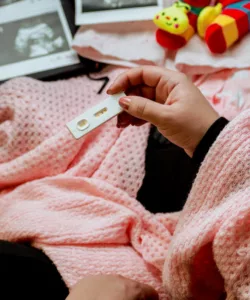
Bonding with your newborn is a crucial aspect of early parenting that has lasting effects on your child’s emotional, social, and cognitive development. It’s the process of forming a strong and nurturing connection with your baby, and it’s vital for their overall well-being. In this comprehensive discussion, we’ll explore the importance of bonding with your newborn and strategies to strengthen this essential connection.
Importance of Bonding with Your Newborn:
- Emotional Attachment: Bonding fosters emotional attachment between you and your baby. This attachment provides a sense of security and trust, which is fundamental for your baby’s emotional development.
- Healthy Brain Development: Positive bonding experiences in infancy have been linked to healthy brain development. Babies who receive love and attention are more likely to have secure attachments and better emotional regulation.
- Communication: Bonding is a form of non-verbal communication with your baby. It helps you understand their needs, cues, and preferences, even before they can express them verbally.
- Building Trust: Bonding with your newborn builds a foundation of trust. When your baby feels safe and loved, they are more likely to develop a sense of trust in themselves and others.
- Positive Self-Esteem: A strong bond with parents or caregivers contributes to a child’s positive self-esteem. Knowing they are loved and valued helps them develop a healthy sense of self-worth.
- Social Skills: Bonding experiences help babies learn about social interactions and relationships. These early lessons can influence their ability to form healthy relationships later in life.
Strategies for Bonding with Your Newborn:
- Skin-to-Skin Contact: Holding your baby skin-to-skin immediately after birth is a powerful bonding experience. It helps regulate their temperature, heart rate, and breathing while promoting a strong emotional connection.
- Eye Contact and Smiling: Babies are drawn to faces, so make eye contact and smile at your baby. This simple interaction can make them feel safe and loved.
- Cuddle and Comfort: Frequent cuddling and comforting your baby when they cry or need attention builds trust and security.
- Responding to Cues: Learn to recognize your baby’s cues for hunger, discomfort, or fatigue, and respond promptly. This helps your baby feel understood and cared for.
- Feeding Time: Whether you’re breastfeeding or bottle-feeding, feeding time is an excellent opportunity for bonding. Maintain eye contact and talk soothingly to your baby during these moments.
- Talking and Singing: Babies love to hear your voice. Talk to them, sing lullabies, or narrate your daily activities. This not only provides comfort but also promotes language development.
- Baby Massage: Gentle baby massages can be soothing and promote bonding. Use baby-safe oils and make sure your touch is gentle and loving.
- Shared Activities: As your baby grows, engage in age-appropriate activities together, such as tummy time, reading books, or playing with age-appropriate toys.
- Stay Present: Put away distractions like phones or TVs when spending quality time with your baby. Being fully present helps strengthen your connection.
- Parental Bonding: Encourage both parents to bond with the baby. Sharing caregiving responsibilities can help create a strong sense of family and support.
Remember that bonding is a unique and ongoing process. Some babies may bond quickly, while others may take more time. The key is to be patient, responsive, and loving. As your baby grows, the bond you establish in these early months will continue to evolve and shape their future relationships and emotional well-being. Bonding with your newborn is not only important for their development but also a rewarding experience for you as a parent.




